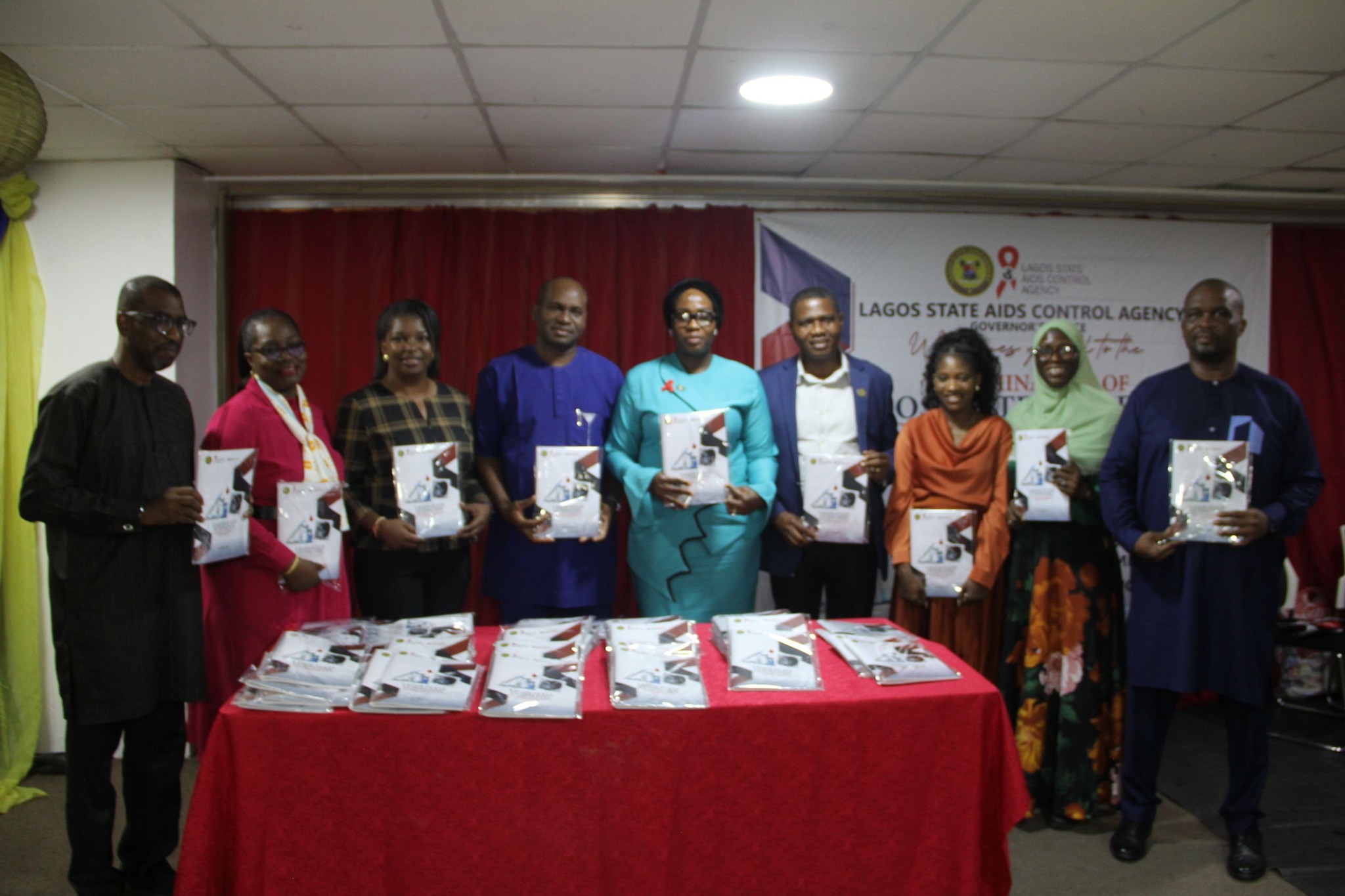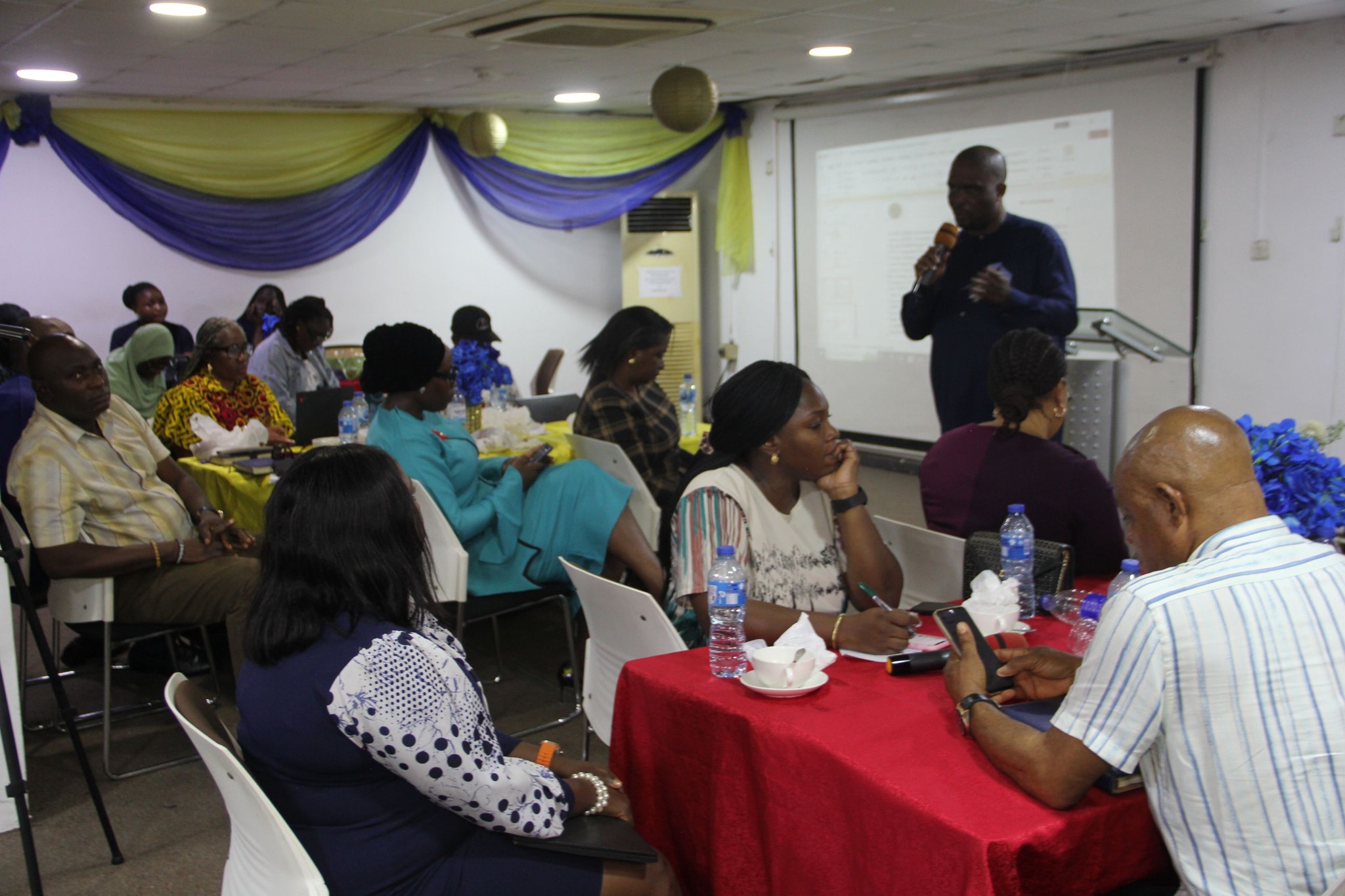Lagos Govt Announces Guidelines For Addressing Gender-based Violence, HIV/AIDS
Posted on November 22, 2024

TAIWO ADELU
In a bid to address the dual challenges of HIV and Gender-Based Violence (GBV), the Lagos State AIDS Control Agency, in collaboration with UNAIDS, has developed a policy document for addressing Gender-Based Violence and HIV/AIDS in the state.
The policy document, tagged “Lagos State Guidelines for Addressing the Intersection of Gender-Based Violence and HIV/AIDS” sets out guidelines to provide practical strategies, tools and actionable steps to integrate HIV and AIDS into GBV response.
Presenting the Policy document at a stakeholders’ engagement, held recently at the Lagos Chamber of Commerce and Industry (LCCI), Chief Executive Officer, Lagos State AIDS Control Agency, Dr. Folakemi Animashaun explained that the intersection of HIV/AIDS and Gender-Based Violence (GBV) presents a critical public health and human rights challenge which demands urgent attention.
Dr Animashaun stated further that the guidelines, which were developed through the collaborative efforts of LSACA, the Domestic and Sexual Violence Agency (DSVA), Lagos State Ministry of Health, UNAIDS, the Network of People Living with HIV and AIDS (NEPWHAN) alongside other Ministries, Departments, and Agencies (MDAs), Networks, service providers, local and International partners, have been designed to reflect the needs of people living with HIV, survivors of GBV, and other vulnerable groups.
She stated further that the government recognises that by addressing the root causes and overlapping impacts of HIV & AIDS and GBV, significant strides can be made towards achieving the shared goals of zero new HIV infections, zero discrimination, zero AIDS-related deaths and zero Gender-Based Violence in the state. She added that the guidelines present an opportunity for all stakeholders to unite efforts to combat the dual epidemic.

“The Guidelines present an opportunity for all stakeholders to unite efforts to combat these dual epidemics and work towards a future where everyone can live free from violence and enjoy safe and healthy lives with unimpeded access to the health services they require”, she said.
Speaking further, the Chief Executive Officer emphasised that the development of the guidelines is a direct reflection of the present administration’s commitment to the Health and Environment Mandate of the THEMES Plus Agenda which aims at ensuring that those affected by HIV and GBV receive the care, support, and protection they need to lead healthy and productive lives.
The Executive Secretary of Lagos State Domestic and Sexual Violence (DSVA), Mrs. Titilola Vivour-Adeniyi, represented by Mrs. Tumininu Oni, praised the Lagos State AIDS Control Agency (LSACA) for its significant strides in combating HIV in the State.
She emphasised that the comprehensive guidelines within the policy would bolster the development of more effective prevention and response strategies as survivors of GBV face an elevated risk of HIV due to factors such as coercion, limited agency, and restricted access to essential AIDS-related services. She, however, noted that the synergy between addressing public health challenges and social justice issues will reinforce the importance of integrated approaches in safeguarding the health and rights of vulnerable populations.
The Country Director of UNAIDS, Dr. Leopold Zekeng, who expressed his appreciation to all contributors and partners who have dedicated their time and expertise to the successful dissemination of the programme, stated that the guidelines present an opportunity for all stakeholders to unite efforts to combat the dual epidemics and work towards a future where everyone can live free from violence and enjoy safe and healthy lives.
Dr. Zekeng, who was represented by Dr. Temitope Fadiya, however, assured that UNAIDS remains committed to working collaboratively with governments, civil society and other partners to create a society where the rights and dignity of all are respected, promoted and fulfilled as the UNAIDS recognises that AIDS remains a global epidemic that is fueled by gender inequalities.
The collaborative effort in the dissemination of the policy document is a testament to the government’s commitment to protecting the health and human rights of its citizens.










